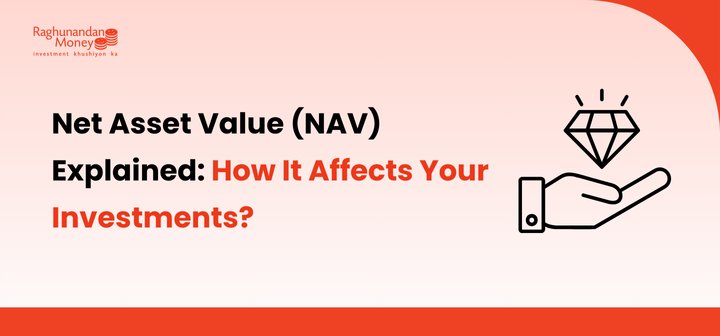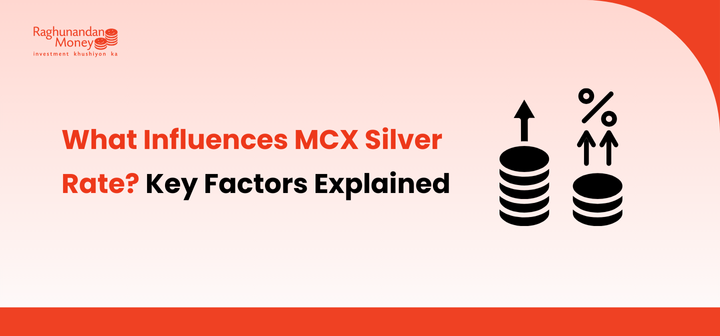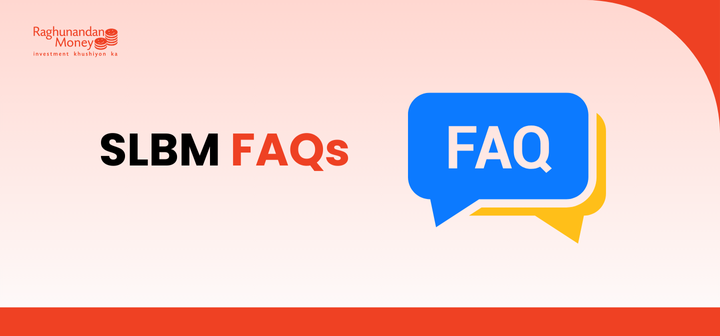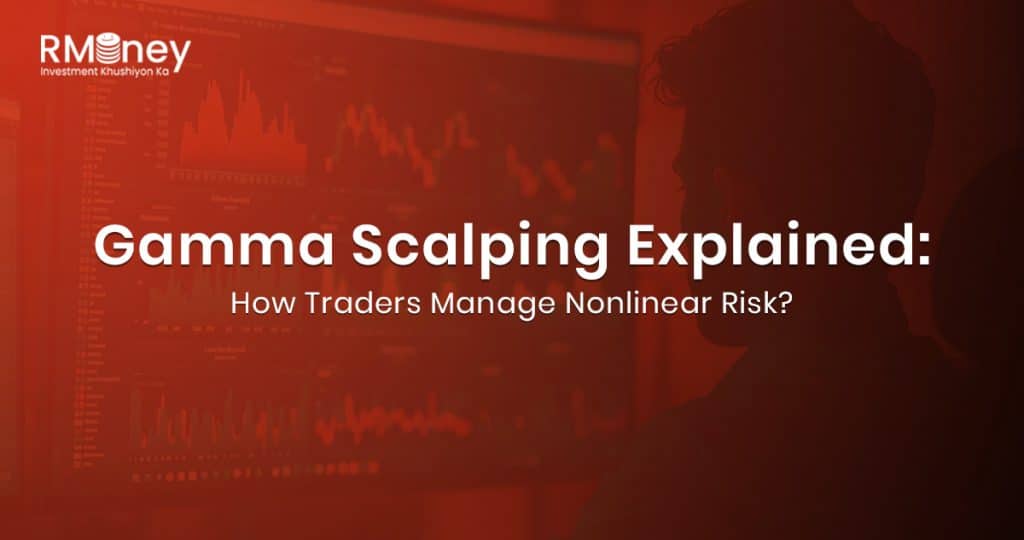Net Asset Value (NAV) Explained: How It Affects Your Investments?
Disclaimer: Investments in the securities market are subject to market risks. This content is for educational purposes only and does not constitute financial advice.
Net Asset Value (NAV) represents the market value per share of a particular mutual fund. It is calculated by deducting the liabilities from the total asset value and dividing the result by the number of outstanding shares. To determine the price of each fund unit, one must gather the market value of a portfolio and divide it by the total number of fund units.
Typically, mutual fund units start with a value of Rs 10, and as the assets under management grow, the NAV increases. This means that a more popular mutual fund with higher asset accumulation will generally have a higher NAV.
NAV is most commonly used for open-end funds, where shares do not trade between shareholders. It provides investors with a reference value to help them decide which investments to retain or withdraw from their portfolio.
Net Asset Value (NAV) Formula
The NAV calculation is straightforward and follows the formula:
Net Asset Value = (Total Assets – Total Liabilities) / Total Outstanding Shares
However, it is crucial to input the correct qualifying items under assets and liabilities to get an accurate NAV.
Components of NAV Calculation
Assets
The asset section of mutual funds includes:
- The cumulative market value of investments
- Receivables
- Cash and cash equivalents
- Accrued income such as dividends and interest payments
These values are determined at the end of each trading day based on the closing price of the securities in the fund’s portfolio.
Liabilities
The liabilities section includes:
- Outstanding payments
- Money owed to lenders
- Fees and charges payable to associated entities
- Foreign liabilities (e.g., shares for non-residents, pending payments to foreign conglomerates)
- Accrued expenses like staff salaries, operating expenses, and management fees
The quantum of these liabilities and assets as of the end of a trading day determines the NAV for that day.
Relevance of NAV for Investors
Many investors mistakenly equate NAV with the stock price of an equity share. However, the two calculations differ:
- The price of an equity share is determined based on only the company’s liquid assets.
- NAV considers both liquid and non-liquid assets to provide a total valuation.
Thus, while total equity represents a company’s working capital, NAV reflects the total monetary worth of a mutual fund, helping investors make informed investment decisions.
Types of NAV Calculation
- Daily Net Asset Value Calculation
Mutual fund companies evaluate the total worth of their portfolio daily after the stock market closes at 3:30 PM. This closing price is used for the next trading day.
- General Calculation of NAV
The general NAV calculation represents the cumulative cost of individual shares. This value fluctuates based on market conditions.
Role of NAV in Mutual Fund Performance
A common misconception is that a lower NAV means a mutual fund is cheaper or a better investment. However, NAV does not directly correlate with a fund’s performance.
- A high or low NAV does not indicate better or worse returns.
- NAV reflects the historical performance of underlying assets.
- Investors should focus on historical returns, objectives, and fund management rather than just NAV.
NAV helps investors track daily performance but should not be the sole deciding factor when choosing mutual funds.
Frequently Asked Questions (FAQs)
- How to Calculate NAV of a Mutual Fund?
NAV is calculated using the formula:
NAV = (Total Assets – Total Liabilities) / Total Outstanding Shares
- How to Check the NAV of a Mutual Fund?
You can check NAV by logging into your RMoney account and searching for the specific mutual fund. The NAV is displayed under the fund’s name.
- What Affects the NAV of a Mutual Fund?
The NAV of a mutual fund depends on the type of assets it holds. The impact of Sensex or Nifty movements on NAV varies based on the composition of the fund’s portfolio.
- Should You Invest in a Mutual Fund with a High NAV?
A high NAV does not mean better performance. Investors should focus on past returns, fund objectives, and management strategies instead of NAV alone.
- Is Higher NAV Better or Lower?
A higher NAV does not necessarily indicate a better fund. NAV provides a per-share valuation but does not determine the fund’s quality or potential returns. Evaluating historical performance and investment goals is more important.
Kickstart Your Investment and Trading Journey with RMoney. Open Your Demat Account Today and Take the First Step towards Smarter Investing and Trading!
Need Help?
Contact RMoney at 0562-4266600 / 0562-7188900 or email askus@rmoneyindia.com

Stock Trading Now trade in ₹9 Per Order or ₹ 999 Per Month Plans.
Future & Options Access F&O contracts with advanced tools for hedging and speculation.
Currency Trading Trade in major currency pairs and manage forex exposure efficiently.
Commodity Trading Diversify Trading with MCX & NCDEX by Trading in Gold, Silver, Base Metals, Energy, and Agri Products.
Margin Trading Funding Boost your buying power with upto 5X, Buy now Pay Later
Algo Trading Back test, Paper Trade your logic & Automate your strategies with low-latency APIs.
Trading View Leverage Trading View charts and indicators integrated into your trading platform.
Advanced Options Trading Execute multi-leg option strategies with precision and insights.
Stock Lending & Borrowing Earn passive income by lending stocks securely through SLB.
Foreign Portfolio Investment Enable NRIs and FPIs to invest in Indian markets with ease and compliance.
IPO Invest in upcoming IPOs online with real-time tracking and instant allotment updates.
Direct Mutual Funds 0% Commissions by investing in more than +3500 Direct Mutual Fund Scheme.
Corporate FDRs Earn fixed returns with low-risk investments in high-rated corporate fixed deposits.
Stocks SIPs Build long-term wealth with systematic investment plans in top-performing stocks.
Bonds & NCDs Access secure, fixed-income investments through government and corporate bond offerings.
Depository Services Safely hold and manage your securities with seamless Demat and DP services with CDSL.
Journey Tracing our growth and milestones over time.
Mission & Vision Guided by purpose, driven by long-term vision.
Why RMoney Platform Smart, reliable platform for all investors' needs.
Management Experienced leadership driving strategic financial excellence.
Credentials Certified expertise with trusted industry recognition.
Press Release Latest company news, updates, and announcements.
Testimonials Real client stories sharing their success journeys.
7 Reasons to Invest Top benefits that make investing with us smart.
SEBI Registered Research Trusted insights backed by SEBI-compliant research.
Our Technology Advanced tools enabling efficient online trading.
Calculators Access a suite of smart tools to plan trades, margins, and returns effectively.
Margin Calculator Instantly check margin requirements for intraday and delivery trades.
MTF Calculator Calculate MTF funding cost upfront to ensure full transparency before placing a trade.
Brokerage Calculator Know your exact brokerage charges before placing any trade.
Market Place Explore curated investment products and trading tools in one convenient hub.
RMoney Gyan Enhance your market knowledge with expert blogs, videos, and tutorials.
Performance Tracker Track our research performance with full transparency using our performance tracker.
Feedback Share your suggestions or concerns to help us improve your experience.
Downloads Access important forms, software, and documents in one place.
Locate Us Find the nearest RMoney branch or service center quickly.
Escalation Matrix Resolve issues faster with our structured support escalation process.
Back Office Log in to view trade reports, ledger, and portfolio statements anytime.
Account Modification Update personal or bank details linked to your trading account.
Fund Transfer Transfer funds instantly online with quick limit updation to your trading account.
Bank Details View our registered bank account details for seamless transactions by NEFT, RTGS or IMPS.
How to Apply IPO Step-by-step guide to apply for IPOs using your trading account.
RMoney Quick Mobile App Trade on-the-go with our all-in-one mobile trading app.
RMoney Quick login Quickly access your trading account through the RMoney Quick web-based trading.
RMoney Rocket Web Version Experience powerful web-based trading with advanced tools for algo traders.
RMoney Rocket Mobile Version Trade anytime, anywhere with our feature-rich mobile trading platform.




















